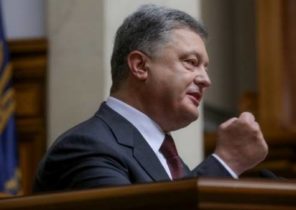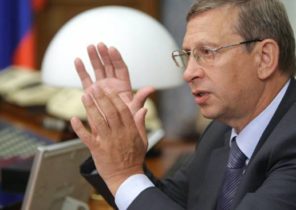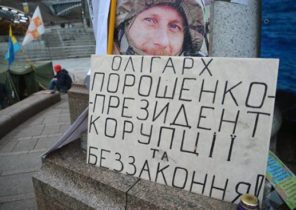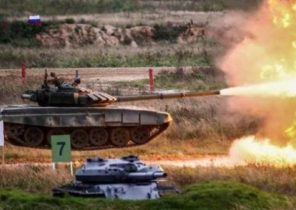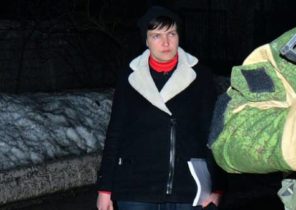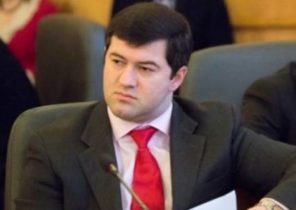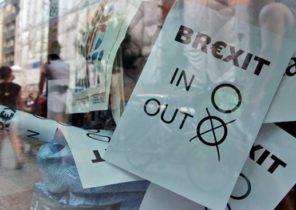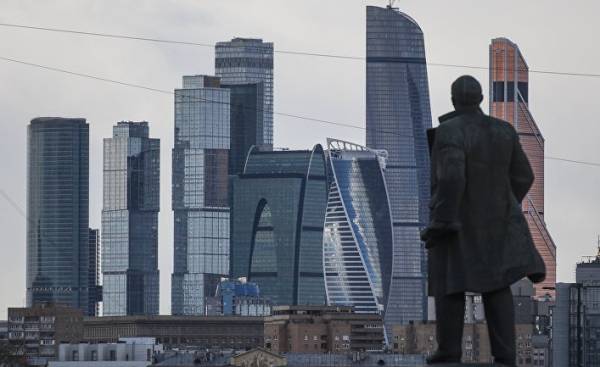
No one is perfect.
If you had to name the most important obstacle in Russia, you immediately say, “the Main obstacle for what?” From the point of view of political analysts and experts on CNN, the main obstacle for democracy is United Russia, the party headed by Vladimir Putin and occupying the majority of seats in Parliament. In fact, this is the point of view of Westerners. But if you ask the same question to random passerby on the streets of Moscow, he does not agree with this point of view. The majority of Russians (51% or 80% depending on whose numbers you trust) actually like Putin. People believe that his “United Russia” has helped to save the country after the tumultuous 1990s, the years when Boris Yeltsin, in which the country sold out for a pittance to wealthy Russians and foreign investors.
The main problem of Russia — and will agree with all is corruption. However, this is followed by a number of complex issues, such as, for example, any corruption schemes exist in the government of Moscow. According to the organization Transparency International, the level of corruption in Russia ahead of China and Brazil, however, the level of inequality between rich and poor is lower there. Brazil is also a corrupt country, but one of the main corruption schemes were uncovered thanks to the efforts of independent experts of the police and the judicial system.
From a market point of view, the main problem of Russia is geopolitics.
The Russian stock market has become hostage to political soap operas. He rose last year after a serious downturn in 2015, caused by the sharp decline in oil prices and the sanctions, which were tightened once again after the election Donald trump in November. Many believed that the tramp could more actively deal with the issue of lifting the sanctions against Russian companies. However, after three months of continuous criticism of Putin opponents of the policy of détente — for various reasons — managed to drive a wedge between Putin and trump. We don’t know how long it will last, but the most important indicator will be the meeting of the two presidents on the sidelines of the summit Big twenty, which will be held in July in Hamburg.
If Russia will not yield to Washington and Brussels in matters relating to Syria and Ukraine, then that will depend a little. Haters will hatiti. And the more often they will be on television, to conclude contracts for the publication of books and the more they will have Twitter followers, the more pompous they become.
It should be noted that the participants of the recent summit “the Big seven” refused to support the idea of tightening sanctions against Russia in connection with its support of Syrian President Bashar al-Assad. They prefer the status quo. The US and the EU imposed sanctions against Russian oil and gas companies.
After the missile strike on Syrian military base on April 7 comments trump that “we will not go to Syria”, triggered a small demonstration after a week break. The Minister of defence James Mattis (James Mattis) also stated that “this attack was not the harbinger of any change in our campaign.” All this allows to preserve the possibility of détente, but from Russia itself in this case is almost nothing depends. The official line remains unchanged: we don’t like what you do and say, but we are here to listen to you if you are willing to listen to us.
Some well-known Russian investment companies claim that wall Street is too concerned about the situation with Russia. “The Americans were on the sidelines in Russia due to geopolitical risks, says Daniel Salter (Daniel Salter), chief strategist at Eurasia in “the Renaissance the Capital” in London. — There is basically dominated by the Europeans.”
Once Putin leaves office. Trump also will not be. But to Russia will continue to stand a serious problem: regionalization. The Russian economy is very regionalized, but about one-fifth of its wealth is in Moscow and the surrounding areas. The Central government retains the unity of Russia, redistributing wealth between regions, as was written by the experts at Mauldin Economics George Friedman (George Friedman) and Jacob Shapiro (Jacob Shapiro) in its February report on the delay of wages in Russia. They believe that in recent years the situation in the country has deteriorated and that is likely the culmination of these processes will happen within the next 20 years. Russia is already gradually starting riots — remember the protests of truckers. Maybe this is a harbinger of future events?
Mauldin Economics adheres to such point of view.
With the economic difficulties of the first face of the port and the hinterland. Port areas will suffer, because trade is the same oxygen that is needed port cities for breathing, and the price of oil, the main Russian exports — will long remain at a low level, as evidenced by the report of Mauldin. The inner regions will suffer, because the Central government will have less money in conditions of low oil prices. This situation puts the drafters of the Russian budget before an extremely difficult choice because they have to choose between redistribution and the reduction of defense spending. In March, defense spending in the Russian budget was reduced by 7%.
Presidential elections in Russia scheduled for March 2018. Like the leader of China XI Jinping (Xi Jinping), who under the pretext of fighting corruption, getting rid of competitors on the eve of his re-election to the Communist party Congress, which will be held in the fall, Putin also strengthened their political position in the name of fighting corruption. Recently, he banned the “Open Russia” to hold a rally, where the organizers were going to encourage local residents to make a choice in favor of Putin. “Open Russia” was founded by Mikhail Khodorkovsky, a former oligarch who was arrested on charges of tax evasion, although he pleads not guilty. Khodorkovsky was banned from politics in Russia. He no longer lives in Russia, and it’s probably the most vociferous opponent of Putin, as he founded in Europe and the United States, two NGOs that fueled anti-Russian information machine. No need to say that Putin considers him persona non grata — the same applies to associates of Khodorkovsky.
Putin has also fired many generals of the Ministry of internal Affairs and Ministry for civil defence, emergencies and elimination of consequences of natural disasters. These ministries are responsible for the forces that are used to ensure public order and the suppression of protests. The impression is that Putin is trying to ensure the loyalty of these ministries on the eve of elections of 2018. According to the Agency “RIA Novosti”, have lost their jobs, 16 generals, and two of them left military service.
“The Russian Federation does not threaten imminent collapse, says Friedman. — These data simply point to the major weaknesses of Russia. You need to take several important measures within the country. On this is now focused Moscow”.
The main problem of Russia is Russia itself. Given the scale of the country, to ensure timely payment of salaries of inhabitants of Siberia and the Far East and expand the regional economy is an extremely difficult task, regardless of who heads the Kremlin.
